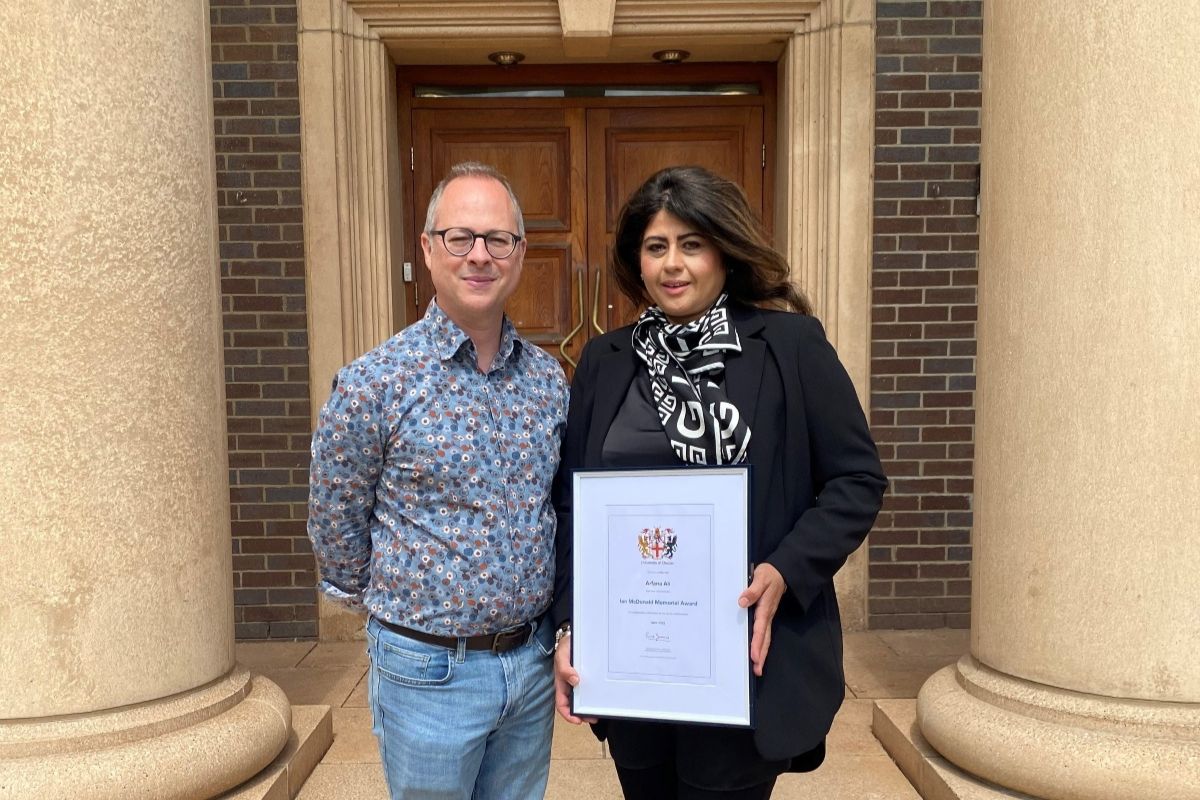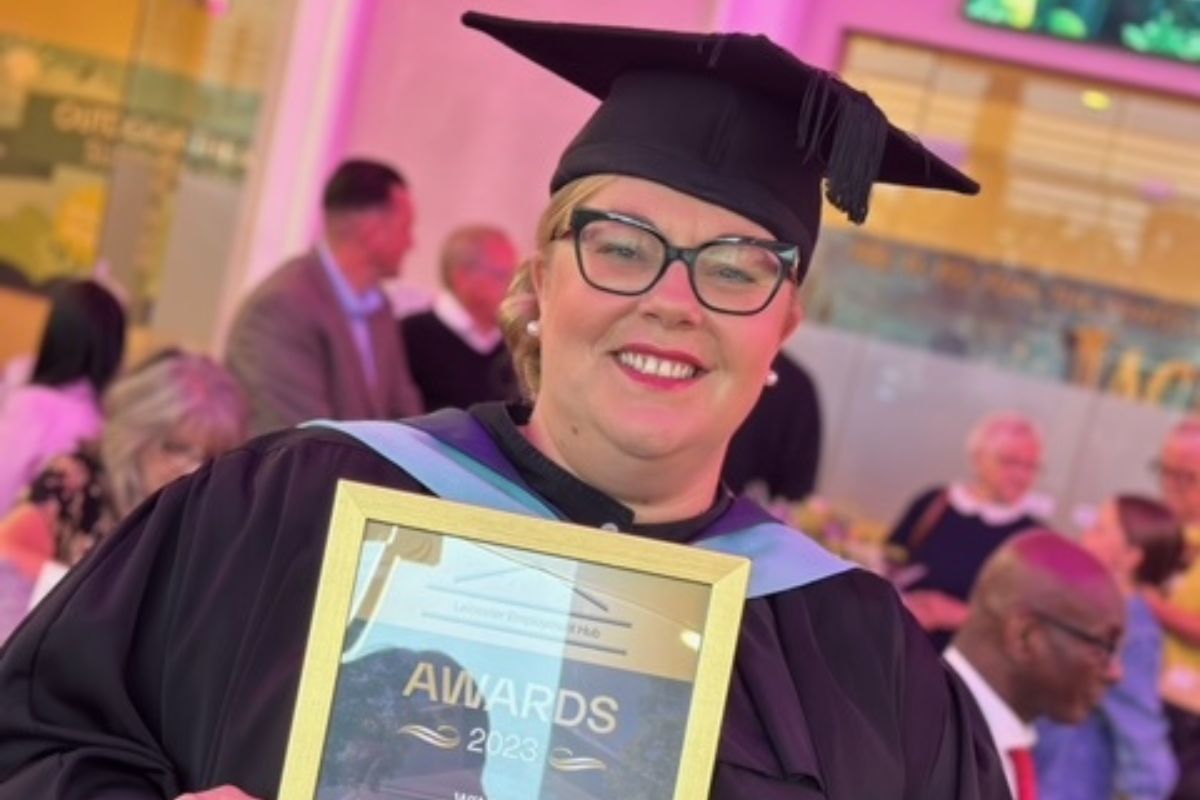16 to 19 funding: maths and English condition of funding
Context
Achieving a level 2 qualification, and in particular a GCSE grade 9 to 4 or A* to C, in both maths and English helps students to progress to further study, training and skilled employment. The maths and English condition of funding ensures that all 16 to 19-year-olds have the best chance of achieving this standard, and get the necessary support to do so.
Changes for academic year 2022 to 2023
The maths and English condition of funding will apply to students starting T Levels from September 2022. T Level students will be subject to the condition of funding in the same way as students on other study programmes. More information on how this applies to students who started T Levels in academic years 2020 to 2021 and 2021 to 2022 is in the section Guidance on particular student circumstances.
Changes for academic year 2020 to 2021
We have made a change to the maths and English condition of funding for the academic year 2020 to 2021 that will apply to students on traineeship programmes. The change reflects the extension of the maximum length of traineeship programmes to 12 months. More information is in the section Guidance on particular student circumstances.
Summary
Students must study maths and/or English as part of their programme in each academic year. This applies to students:
aged 16 to 18 and 19 to 25 with an education, health and care (EHC) plan who do not hold a GCSE grade 9 to 4, A* to C (a standard pass grade) or equivalent qualification in these subjects
doing a programme of 150 hours or more, which started on or after 1 August 2014
This requirement is a condition of funding for all students on 16 to 19 study programmes, or who start on T Levels from academic year 2022 to 2023, and is part of the funding regulations. It also forms part of institutions’ contracts with ESFA. We will remove funding from future allocations for students who do not meet the condition of funding. The other elements of the funding formula are not affected.
The qualifications that meet the condition of funding are GCSEs, Functional Skills Level 2 and other ‘stepping stone’ qualifications. Qualifications that meet the condition of funding have a record in the Learning Aim Reference Service (LARS) database that sets out how long they are valid for.
From academic year 2019 to 2020, students with a grade 2 or below in maths or English can study towards a pass in functional skills level 2 (legacy or reformed) or they can still study towards a GCSE grade 9 to 4. Once they have achieved this, there is no requirement to undertake further maths or English qualifications to meet the condition of funding. A student does not need to continue studying these qualifications with their current provider, if these students have already achieved either with a previous provider.
This adjustment allows providers and students with prior attainment of GCSE grade 2 and below to choose which level 2 qualification is most appropriate.
Part-time students with a grade 3 can still study any qualification approved to meet the condition of funding as a stepping stone towards achieving a GCSE grade 9 to 4.
Students with a pass grade in maths or English functional skills level 2 (legacy or reformed) should be recorded in the individualised learner record (ILR) and school census as follows:
ILR (from academic year 2019 to 2020)
For English, record FAM Type ECF and code 5 (learner holds a pass grade for functional skills level 2 in English)
OR
For maths, record FAM Type MCF and code 5 (learner holds a pass grade for functional skills level 2 in mathematics)
School census (from Autumn 2019)
For English, record code F in the English GCSE funding exemption field
OR
For maths, record code F in the Maths GCSE funding exemption field
Progress measures
We include a headline progress measure in performance tables to recognise the progress that students make in maths and English. This holds schools and colleges to account for the progress of students in maths and English. We align the methodology of this progress measure as closely as possible with the condition of funding rules. We publish any revisions to the measure in the Technical Guide: 16 to 19 accountability headline measures.
Due to coronavirus (COVID-19), we have changed our approach to accountability data in 2019 to 2020 and 2020 to 2021. You can find the latest guidance on how school and college accountability will operate here.
Qualifications approved for teaching to 16 to 19-year-olds who meet the condition of funding
To meet the condition of funding, a student has to study an approved qualification. These are GCSEs, functional skills level 2 and certain other qualifications, known as ‘stepping stone’ qualifications. Full time students who have a GCSE grade 3 or grade D must study a maths and/or English GCSE.
Stepping stone qualifications include:
functional skills at level 1 and below
English for speakers of other languages (ESOL) and
other qualifications nominated by institutions and approved by the department
Qualifications that meet the condition have a validity record in LARS. Institutions must check the status of qualifications using LARS before enrolling students to ensure the qualification is approved and valid at the time of enrolment.
Qualifying periods
Students have to pass a qualifying period for each maths and English qualification before it counts. The qualifying period is:
6 weeks for a qualification with a planned length of 24 weeks or more
2 weeks for a qualification with a planned length of less than 24 weeks
Students meet the condition of funding when they are studying for a qualification. It is up to institutions to decide when they are ready to take the exam.
Students withdrawing from their study programme
Where a student has enrolled on a maths and/or English qualification that meets the condition of funding but does not complete it, provided they have studied the qualification for the qualifying period, they will still meet the condition of funding. If a student’s core aim was maths and/or English and the student drops out entirely then funding is reduced through the retention factor in the usual way. We have published further information on core aims in programmes in the rates and formula guidance.
Notes on individual qualification types
students will not be able to re-sit the old maths and English GCSEs (those with letter grades) after summer 2017
English language qualifications meet the condition of funding, however dual English literature and language qualifications and single English literature qualifications do not meet the condition of funding; however, they do continue to count as equivalent to GCSEs for the purposes of recognising prior attainment
international GCSEs no longer meet the condition of funding; however, they do continue to count as equivalent to GCSEs for the purposes of recognising prior attainment
holding the International Certificate in Christian Education (ICCE) exempts a student from further study in maths and English; when students have achieved an ICCE, institutions can record an exemption for holding an overseas equivalent qualification
What students can and must study
A summary of what qualifications students must be studying is below.
For the purposes of the condition, full time and part time are defined as:
full time: 540 hours or more for 16 to 17-year-olds, or 450 hours or more for those 18 and older
part time: between 150 and 539 hours aged 16 to 17-year-olds, and between 150 and 450 hours for those 18 and older
Student
Programme (all types, including traineeships)
What a student must study to meet the condition of funding
All students
Short programmes (less than 150 hours)
Condition of funding does not apply
GCSE grade 3 or grade D or overseas qualification at the equivalent grade
Full time
GCSE
GCSE grade 3 or grade D or overseas qualification at the equivalent grade
Part time
Any qualification approved to meet the condition
GCSE grade 2 or below, grade E or below or overseas qualification at the equivalent grade or no GCSE
Full time or part time
Any qualification approved to meet the condition. Functional skills level 2 pass and GCSE 9 to 4 will meet the condition with no requirement to undertake further English/maths qualifications
Overseas qualification GCSE grade 9 to 4/A* to C equivalent
Full time or part time
Exemption applies
EHC plan AND institution assessment that confirms they are not able to study either GCSE or stepping stone qualifications
Full time or part time
Exemption applies
EHC plan with NO assessment
Full time or part time
Any qualification approved to meet the condition; the student is not exempt from the condition
Prior attainment with GCSE English literature and GCSE English language
English language GCSE grade held
English literature GCSE grade held
What student can and must study
9 to 4 or A* to C
9 to 4 or A* to C
Condition of funding met for English, no requirement to continue studying subject
9 to 4 or A* to C
3 or below, D or below, No grade
Condition of funding met for English, no requirement to continue studying subject
3 or below, D or below, No grade
9 to 4 or A* to C
Condition of funding met for English, no requirement to continue study of subject
3 or D
3 or D
GCSE English language only
3 or D
2 or below, E or below, No grade
GCSE English language only
2 or below, E or below, No grade
3 or D
Any qualification approved to meet the condition. Functional skills level 2 pass and GCSE English language 9 to 4 will meet the condition with no requirement to undertake further English/maths qualifications
2 or below, E or below, No grade
2 or below, E or below, No grade
Any qualification approved to meet the condition. Functional skills level 2 pass and GCSE 9 to 4 will meet the condition with no requirement to undertake further English/maths qualifications
Level 3 qualifications
A range of level 3 maths and English qualifications such as A and AS levels, core maths, Pre-U and the International Baccalaureate can be taught as an alternative to GCSE when it is appropriate for the student.
Students retaking maths and English qualifications
A retake is defined as a qualification retaken by a student, including learning and attending lessons other than revision lessons. Students are funded to retake maths and/or English until they achieve a GCSE grade 9 to 4. For students with a grade 2 or below this can be either a functional skills level 2 or GCSE grade 9 to 4.
Prior attainment
Students meet the condition of funding when they have already achieved GCSE grade 9 to 4 or A* to C in maths, and in English language, English literature, or English language and literature.
We treat some qualifications in maths, English language, English literature, and English language and literature as equivalent to GCSE grade 9 to 4 or A* to C. This means that students who have studied in England or elsewhere who hold the following qualifications do not have to study maths and/or English to meet the condition of funding:
international GCSEs, regulated or unregulated, or equivalent level 1/level 2 certificates grade A* to C/9 to 4
GCSEs grade A* to C, obtained in Wales, including maths numeracy
GCSEs grade A* to C, obtained in Northern Ireland
Scottish Intermediate 2 certificates grade A to C
Scottish Standard Grades (credit level) grade 1 to 2
Scottish National 5 certificates grade A to C
Scottish Higher grade A to C
Scottish Advanced Higher grade A to C
Scottish National Certificate Unit (SCQF Level 6) only Communication at pass grade
international O levels grade A* to C
A and AS levels at any pass grade
full International Baccalaureate (IB) level 3 Diploma (LARS reference 50034157)
International Baccalaureate Middle Years Programme Certificates in maths and/or English at grade 3 or above
International Baccalaureate Certificate Level 3 Certificates in maths and/or English A at grade 3 and above
core maths qualifications at level 3
Students who start their 16-19 study programmes with a grade 2 or below and then go on to achieve a pass in Functional Skills Level 2 will no longer need to undertake any further maths and English qualification to meet the condition of funding.
International GCSEs for the purpose of recognising prior attainment
International GCSEs, regulated or unregulated, or equivalent level 1/level 2 certificates in maths and English all count as equivalent to GCSEs for the purposes of recognising prior attainment in the 16 to 19 maths and English condition of funding.
Students who hold these qualifications in maths and English at GCSE grade 9 to 4 or A* to C will not have to continue their study of these subjects.
Overseas qualifications
Students who have achieved an overseas qualification that is equivalent to a GCSE in maths and/or English language are exempt from the condition of funding.
Guidance on particular student circumstances
19+ continuing students
19+ continuing students are now all funded through the standard ESFA 16 to 19 allocations process. The condition of funding in maths and English did not apply to 19+ continuing students in FE colleges and independent learning providers previously, and does not apply to these students in the 2020 to 2021 academic year (which will impact on 2022 to 2023 allocations). We will review the application of the condition of funding to these students for future years.
Home educated students
A student who has previously been home educated and wishes to continue their education at an FE institution must comply with the condition of funding.
Students who speak limited English studying maths qualifications
A student who speaks limited English will still need to have maths in their programme, at a suitable level. This could be phased into the programme as their ability in English improves. For example, a student could study an ESOL qualification in the first term and enrol on a maths qualification in the second term.
Students on short study programmes
To ensure those that want to study short courses are not discouraged from doing so, there is flexibility for those on small part time programmes of less than 150 planned hours. Students on these programmes do not have to study maths and English qualifications approved for the condition of funding. However, we expect institutions to include some maths and English content in programmes taken by such students to facilitate their learning.
Students achieving a GCSE or equivalent outside of their study programme
If a student achieves a GCSE grade 9 to 4, A* to C or a qualification deemed as equivalent by other means, then they will have met the condition of funding for the remainder of their programme. This also applies to students with prior attainment of GCSE grade 2 who pass functional skills level 2. Institutions must make sure that they record the achievement grade in the data return, to tell us that the student has met the condition of funding.
Students on traineeship programmes
Students on traineeship programmes are subject to the condition of funding in the same way as students on other study programmes.
From the academic year 2020 to 2021, the condition of funding grade 3 or grade D requirement will apply to students on traineeship programmes according to whether the student is full time or part time.
Full time students with prior attainment of GCSE grade 3 or grade D in English and/or maths must study GCSE to meet the condition; part time students can study towards a GCSE or a valid stepping stone qualification, irrespective of prior attainment.
Students on apprenticeship programmes
Students on apprenticeship programmes are not subject to the maths and English condition of funding. However, similar requirements are in place to ensure all apprentices have achieved a good level of literacy and numeracy by the end of their apprenticeship to support their immediate and future career choices.
Students on T Levels
The condition of funding will apply to all students starting T Levels from academic year 2022 to 2023 in the same way as it does to students on other 16 to 19 study programmes. It does not apply to students who started T Levels in the academic years 2020 to 2021 or 2021 to 2022. However, we expect these students who have yet to achieve a GCSE grade 4 in English and/or maths, to continue to work towards a Level 2 in these subjects
Students on supported internships
Students on supported internships are not automatically exempt from the condition of funding. Some students on internships may meet the criteria to be exempt from the condition. Students on supported internships with an exemption should still be studying maths and English at an appropriate level, even when they are not able to work towards a stepping stone qualification or GCSE.
Exemptions to the condition of funding
There are 2 exemptions to the condition of funding:
students with special educational needs and/or disabilities (SEND), who are assessed as not able to study either GCSE or stepping stone qualifications
students with overseas qualifications that are established as equivalent to GCSE grade 4 or grade C
Students with SEND exemption
Where a student with SEND does not hold a GCSE grade 9 to 4, A* to C or equivalent qualification in maths and/or English, an institution may decide that it is not appropriate for them to study for a GCSE or a stepping stone qualification. In this case, in addition to the student’s EHC plan, the institution must hold an evidenced assessment that the student is not able to study these subjects.
All exemptions must be considered on a case by case basis. There is no blanket exemption for whole institutions.
Assessments for exemptions must be authorised by an appropriate professional in the institution, such as the head of SEND or student support. The assessment should be structured and documented. We do not expect to give further detailed advice on the format or on who should conduct the assessment. This is for institutions to decide. Exemptions will be monitored from the data institutions submit rather than on an individual basis.
Institutions should keep evidence that justifies their decision that a student is exempt. This information must be available to auditors appointed to test the use of ESFA funding and to Ofsted inspectors.
When a student with SEND does not hold a GCSE grade 9 to 4, A* to C or equivalent qualification in maths and/or English, every effort should be made to enable them to achieve these valuable qualifications. Students with SEND and who have achieved a GCSE grade 3, grade D or equivalent qualification in maths and/or English should be capable of improving their GCSE grade with the right teaching and support.
When a student is not able to study a GCSE, institutions should support them in studying a stepping stone qualification. There are a range of qualifications available for students from entry level upwards. Institutions can enrol a student on a course for up to 3 years, or longer if the student is in learning to age 25. This range of qualifications gives institutions scope to offer the student opportunities to progress to the appropriate level in maths and English.
There are a small number of students who are not able to take any qualifications. These students are exempt from studying qualifications but appropriate literacy and numeracy should still be included in their programme at an appropriate level.
We expect institutions to use the flexibilities available to tailor programmes to enable each student to improve in maths and/or English to the best of their ability. Institutions should recognise and record students’ progress and achievement.
Students with overseas qualifications exemption
Students who have studied in a country that does not provide GCSEs are potentially exempt from the condition of funding where the overseas qualifications they hold are equivalent to GCSE grade 4 or grade C.
Institutions must get confirmation from the National Information Centre (UK ENIC) that the qualification is equivalent to GCSE grade 9 to 4 or A* to C. ENIC is the UK’s national agency responsible for providing information and opinion on academic, vocational and professional qualifications from across the world.
As well as confirmation from ENIC that an overseas qualification is equivalent to GCSE grade 4 or grade C, institutions also have to ensure that the student possesses the necessary competence in maths and English to achieve their programme. If the student needs additional teaching or support to function on their programme, institutions must include it in the programme. This kind of activity is eligible for funding and should be included in the planned hours.
Students who have achieved the International Certificate in Christian Education (ICCE) do not have to study maths and English, as the ICCE is equivalent to a standard pass in maths and English. When students have achieved an ICCE, institutions can record an exemption for holding an overseas equivalent qualification. They do not have to get the equivalence certified by ENIC.
Recording and monitoring of exemptions and prior attainment
To avoid funding being withdrawn unnecessarily, institutions must record exemptions in their data returns. It is also good practice for institutions to note exemptions in their own records.
There is no need to inform ESFA that a student is out of scope for the maths and English condition of funding because they are studying for less than 150 hours in the academic year.
ILR returns use funding and monitoring (FAM) codes to show when a student qualifies for one of 2 exemptions. The same FAM field shows when the student meets the condition of funding by holding a UK qualification or by studying maths/English at another institution.
School census returns use a set of letter codes to record the same information.
ILR FAM code
School census code
Learner is exempt from GCSE maths/English condition of funding due to a learning difficulty
ECF (English condition of funding)/MCF (maths condition of funding) 1
L (the same code is used in the English and maths fields)
Learner is exempt from the condition of funding as they hold an equivalent overseas qualification
ECF/MCF 2
O
Learner has met the condition of funding as they hold an equivalent UK qualification
ECF/MCF 3
U
Learner has met the condition of funding by undertaking/completing a valid maths/English GCSE or equivalent qualification at another institution through collaboration with the home institution
ECF/MCF 4
No code available
Collaboration between institutions to ensure students are meeting the maths and English condition of funding
When institutions collaborate to deliver maths and/or English, one institution must be responsible for claiming funding for a student’s whole programme, and making sure that they meet the condition of funding. Wherever possible, institutions must avoid enrolling and claiming funding for part of a student’s programme.
However, in a small number of cases, students study for maths and/or English with another institution. In these circumstances the home institution must make sure that students meet the condition of funding.
For institutions that return the ILR
To avoid being penalised for students not meeting the condition of funding, institutions must use the FAM code ECF/MCF 4. Institutions must only use this code when students are studying maths and/or English qualifications at another institution.
For institutions that return the school census
The school census does not have the capacity to show that students are studying maths and/or English qualifications at another institution. Therefore schools must submit a business case for an adjustment to their funding after they have received their allocation statement.
The business case must include this information:
the numbers of students who have studied or retaken a maths and/or English qualification at another institution (we do not need individual student data such as unique pupil numbers (UPNs) and names)
the name of the other institution(s) where they have studied
the maths and/or English qualifications studied
a statement that collaboration has taken place with brief details
accounting officer confirmation that the information is correct
Demonstrating progression
Institutions must be able to demonstrate progression for students enrolled on maths and/or English qualifications. In most cases, we expect that it will be appropriate for students to study for a qualification at a higher level than they have already attained, rather than just improving their grade at the same level as their previous achievement.
When a student is studying for a qualification at the same level as a previous achievement, institutions must have evidence of why the qualification is the best choice for the student.
Audit and inspection
Institutions will be subject to risk-based compliance audit to ensure the data submitted for maths and English participation and prior attainment and evidence for exemptions are sound. On inspection, Ofsted will establish that students are on the most suitable study programme and that any exemptions from studying maths and English are appropriate.
Auditors appointed to test the use of ESFA funding will check when institutions claim a student is exempt to ensure the exemption reason is valid. Institutions must ensure that they keep adequate evidence when they apply either of the 2 exemptions. ESFA will monitor how institutions use exemptions.
Applying a tolerance to allocations
We have decided to continue to apply tolerance level of 5% until further notice, in recognition of the continued efforts of institutions to deliver the 16 to 19 maths and English policy. We expect that the clarity over the level of tolerance in future years will provide institutions with increased certainty on which to plan.
We will apply funding reductions for non-compliance with the condition of funding to institutions where more than 5% of students (calculated by value) without a GCSE grade 9 to 4 or A* to C in maths and/or English did not enrol on an approved qualification in these subjects. The funding reductions for these institutions will be applied at half the national funding rate above the tolerance.
An example of how the funding deduction is calculated
We will apply funding reductions to institutions above a tolerance of 5% of total students (calculated by value) for students who do not meet the condition of funding. We will remove funding for these institutions for each student above the tolerance level at half the national funding rate.
The 5% tolerance is calculated by determining the value of the non-compliant students and expressing this as a percentage of the total value of all students. The value for a student is the national rate for their funding band.
The below example shows the calculation of the funding reduction for the 2022 to 2023 year, which is based on data for 2020 to 2021. For students who are non-compliant above the tolerance, we will remove funding at a reduced rate of 50% of the 2020 to 2021 national funding rate for the band. We will only remove funding above the 5% tolerance.
Example
Stage 1
To calculate the value of non-compliance (E), the number of non-compliant students from end year 2020 to 2021 data (C) was multiplied by the appropriate national funding rate (A) according to their total planned hours. Values for students in the 0-279 band was calculated as a proportion of the full time national rate based on their total planned hours divided by 600.
Stage 2
To calculate the total value of 2020 to 2021 students (D), the total number of students in each band (B) was multiplied by the appropriate national funding rate (A). Data was from the final return of the ILR or the autumn census for the 2020 to 2021 academic year.
In the example below the value of non-compliant students (E) is £707,886; the value of all students (D) is £8,655,437. This is non-compliance of 8.18%.
A
B
C
D (B x A)
E (C x A)
Funding band
National rate for 2020 to 2021
2020 to 2021 total students per band
2020 to 2021 non-compliant students
National rate per student: value of all students
National rate per student value of non-compliant students
Full time students (at least 540 hours)
£4,188
1,207
94
£5,054,916
£393,672
Full time students 450+
£3,455
88
27
£304,040
£93,285
Part time students (450-539 hours)
£3,455
765
45
£2,643,075
£155,475
Part time students (360-449 hours)
£2,827
124
21
£350,548
£59,367
Part time students (280-359 hours)
£2,234
60
1
£134,040
£2,234
Part time (up to 279 hours)
£4,188
132
3
–
–
Part time (up to 279 hours) – FTE
£4,188
40.31
0.92
£168,818
£3,853
2,376
191
£8,655,437
£707,886
Stage 3
We calculated 5% of the total value for all students at the national funding rate (D) to calculate the financial value of the tolerance (F). The tolerance is then discounted from (E) the condition of funding reduction to calculate the in-scope reduction (G). The final reduction (H) is then calculated by taking 50% of (G) of the in-scope reduction.
F
G
H
5% of 2015 to 2016 national rate per student funding (D x 5%)
Non-compliant students total less 5% (E – F)
Final condition of funding removal at 50% (G x 50%)
(£8,655,437 x 5%) = £432,772
(£707,886 – £432,772) = £275,114
(£275,114 x 50%) = £137,557
In this example the tolerance (F) is £432,772, the reduction in-scope (G) is £275,114, and the final reduction is £137,557. If the value of non-compliant students in this example (E) was less than £432,772 the institution would have no withdrawal of funding.
Resources
We have published an interactive tool for the school census to help users to understand how the condition of funding works within the census. It provides specific examples of how to check qualifications that do not meet the condition of funding and the impact this will have when non-compliant or out of date qualifications are included.
When you return your autumn census, which includes the post-16 module, 2 reports on the condition of funding are available through COLLECT (one for the current funding year, and one for the previous year). We have published guidance on the reports.
The Funding Information System (FIS) will help further education (FE) providers validate their ILR data. The reports available through FIS gives the maths and English status of every student, showing whether they have achieved at least a GCSE grade 4/or grade C in each subject and whether they are currently studying for a valid qualification in the subject. The reports also show those students recorded as exempt from the condition of funding.
The Education Training Foundation (ETF) offers a range of opportunities and resources for teachers, trainers and leaders to support practitioners to confidently teach maths and English.
The Excellence Gateway provides a wide range of resources for teaching maths and English.












Responses